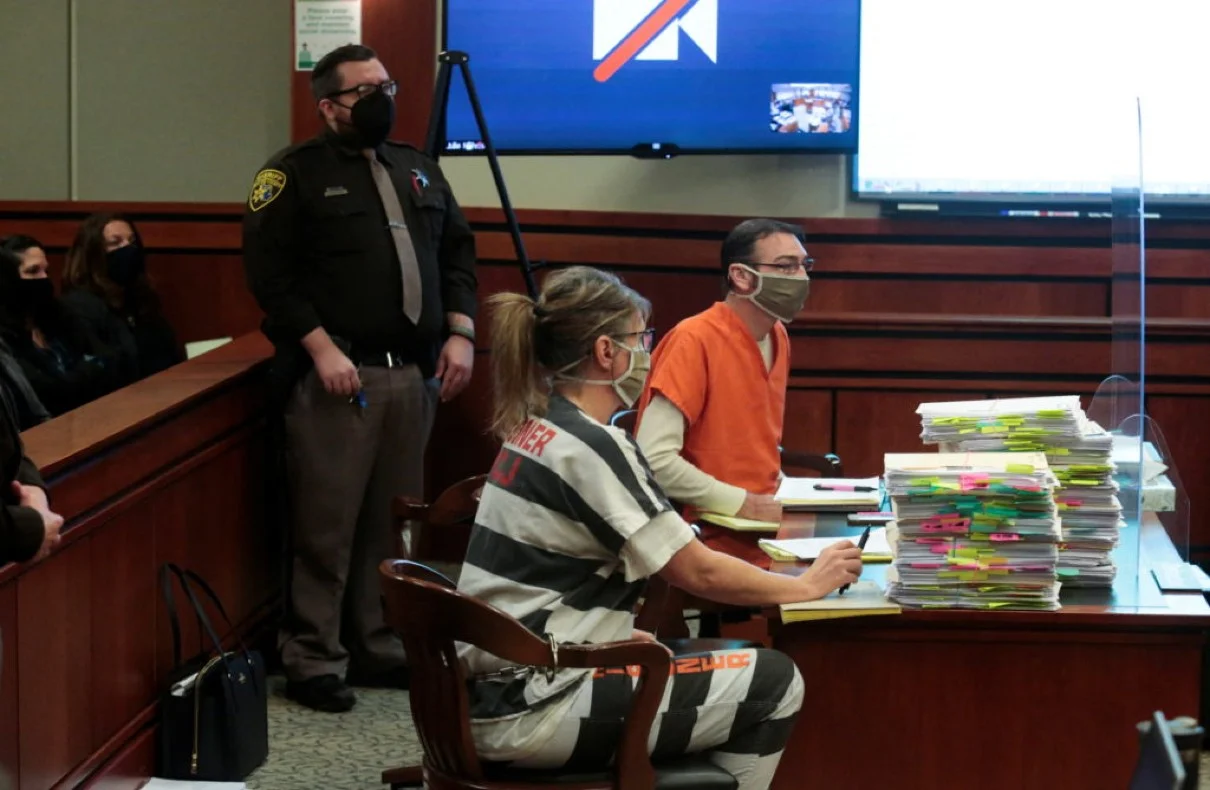
School shootings have become a devastating and all too frequent occurrence in the United States. The tragic loss of innocent lives and the lasting impact on communities has prompted a reevaluation of who should be held responsible when a child commits such a heinous act. In recent months, prosecutors have begun to explore the controversial question: should parents be held accountable for their child’s actions?
On November 30, 2021, a 15-year-old student brought a gun to Oxford High School in Michigan, resulting in the deaths of four students and the injury of seven others. The shooter, Ethan Crumbley, was sentenced to life in prison for the murders. However, the focus has now shifted to his parents, James and Jennifer Crumbley, who are facing charges of involuntary manslaughter.
While prosecutors acknowledge that the Crumbleys were unaware of their son’s plans, they argue that the parents’ actions and negligence make them responsible for the tragic outcome. The Crumbleys purchased a 9mm handgun for their son just four days before the shooting, allegedly failed to secure it properly, and ignored warning signs of their son’s potential threat to others. Prosecutors assert that holding parents accountable in such cases is crucial to address the issue of school gun violence.
Dinosaur Fossil: The Incredible Seventy-Million-Year-Old Discovery
One key aspect highlighted by school shooting data is the importance of secure gun storage within the family. In a majority of school shootings committed by children, the weapons were found in the homes of friends, relatives, or parents. This highlights the need for responsible gun ownership and secure storage to prevent unauthorized access to firearms by minors.
While the Crumbley case has drawn significant attention, the prosecution of parents in school shooting cases remains relatively rare. Legal experts caution that each case must be evaluated individually, considering whether parents were aware of the risks posed by their child and willfully disregarded warning signs. The delicate balance between parental responsibility and criminal negligence is a complex issue that requires careful examination.
Extending liability to parents for the criminal acts of their children raises important questions about societal perceptions of parental culpability. Some argue that this approach may disproportionately affect marginalized communities, as they are more likely to face the brunt of legal consequences. Experts suggest that while the desire to hold parents accountable is understandable, it is essential to consider the broader implications and potential unintended consequences of such prosecutions.
Recognizing and addressing mental health issues in children is crucial in preventing school shootings. In the Crumbley case, the defense argues that Jennifer Crumbley was unaware of her son’s mental health struggles and had no reason to believe he was a danger. However, prosecutors contend that there were warning signs, including text messages where the shooter expressed seeing demons and experiencing mental distress.
Identifying and acting upon warning signs is a critical aspect of preventing school shootings. In the Crumbley case, the shooter’s disturbing drawings and concerning messages should have raised red flags. The failure to address these warning signs and seek appropriate help for the troubled teenager has become a focal point of the trial.
Police Search for Missing 3-Year-Old Boy in Wisconsin
The Crumbley trial has garnered significant attention due to its unique circumstances. Legal experts caution against allowing emotionally charged cases to dictate broader legal precedent. While the facts of the Crumbley case may warrant prosecution, it is essential to consider the potential repercussions and how future cases may be treated differently.
In addition to criminal charges, civil liability has become an avenue for holding parents accountable for their child’s actions. Lawsuits against gun manufacturers and sellers have sought to shed light on the role these entities play in enabling access to firearms by minors. Such cases aim to send a message that those involved in providing guns to children will face legal consequences.
Addressing the issue of school shootings requires a multifaceted approach. While holding parents accountable may be one aspect, it is crucial to consider other factors such as mental health support, secure gun storage regulations, and early intervention programs. Only through a comprehensive strategy can society hope to prevent future tragedies.
The Crumbley trial brings to light the complex issue of parental responsibility in cases of school shootings. While the desire for justice is understandable, it is essential to carefully evaluate individual cases and consider the broader implications. Balancing the need for accountability with the potential unintended consequences of parental prosecution requires a nuanced approach.
Ultimately, preventing school shootings necessitates a holistic strategy that addresses mental health, responsible gun ownership, and early intervention. By addressing these underlying factors, society can work towards creating safer environments for our children.
